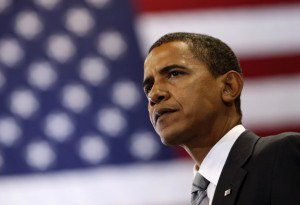 Facing the possibility of a government shutdown if he can not reach a deal with Republicans on the federal budget, President Obama's budget has proposed adding a surcharge to the purchase of all concert and sporting event tickets.
Facing the possibility of a government shutdown if he can not reach a deal with Republicans on the federal budget, President Obama's budget has proposed adding a surcharge to the purchase of all concert and sporting event tickets.
The fees would be equal to 5% of the total ticket price, including fees charged by ticket service companies like Ticketmaster.
The budget office estimates that such a fee would produce $3 billion in annual revenue, monies that could be used directly to fund arts programs that the Republican-controlled House of Representatives has voted to cut.
White House Press Secretary Jay Carney said, in a statement. "Tough times require hard choices, and we are committed to bringing down the federal budget deficit. By deriving revenue from purely discretionary spending, we can save important programs while maintaining fiscal responsibility."
In an ensuing question and answer session with reporters, Carney said various mechanisms to produce revenue for the federal government were investigated, and settled on ticket surcharges because research found "there is seemingly no limit to what people will pay in ticketing fees." He noted that some events with ticket face values as low as $25 charge ticketing fees as high as $12. "What's another $1.85?" he then asked rhetorically.
Live Nation, the leading concert promoter that acquired Ticketmaster last year, issued a statement condemning the proposal. "President Obama's shortsighted proposal would hurt fans of music and sporting events while slowing growth in a business that employs more than 2 million Americans. We strongly urge him to reconsider."
Speaker of the House John Boehner concurred, calling the ticket proposal "just another tax on hard-working Americans." With a tear welling up in his eye, he noted that the surcharge would have a particular negative impact on minor league sports and small touring bands that earn most of their money through ticket sales. "The President is trying to put bands like Ekoostik Hookah our of business, and I won't stand for that," he said, referencing an obscure musical act that hails from his home state of Ohio. "I don't want to live in a country where you can't go to Hookahville without having to dish out for Uncle Sam."